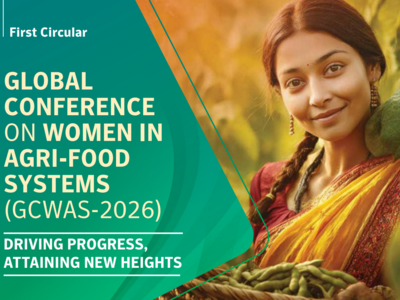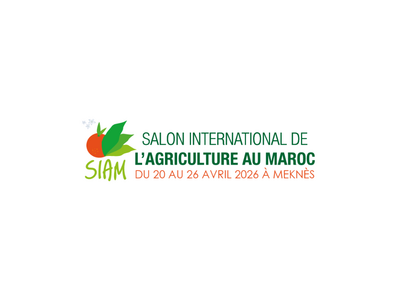Training workshop on Irrigated Agriculture under Climate Change
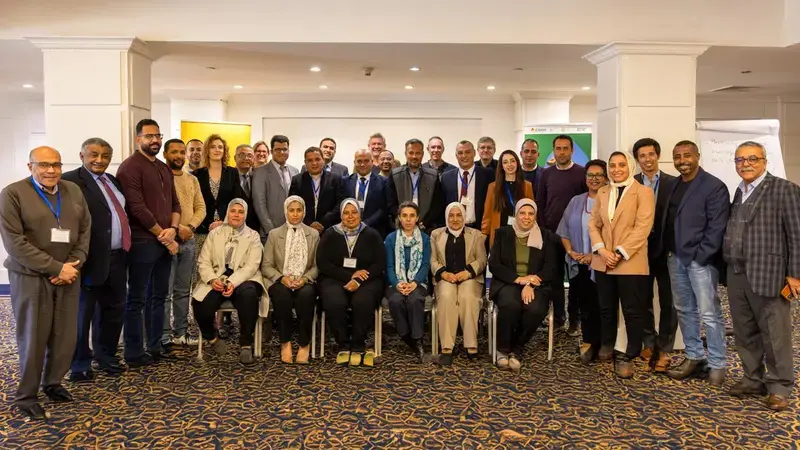
February 22-27, 2025, ICARDA, in partnership with the Australian Centre for International Agriculture Research (ACIAR), hosted a training workshop on “Irrigated Agriculture under Climate Change” in Cairo, Egypt, to discuss and develop joint research for development priorities between Australia and the participating countries of Egypt, Sudan, and Algeria.
Over five days of intensive discussions and collaboration, the workshop brought together National Agricultural Research Systems (NARS) partners, the Ministry of Water Resources and Irrigation, and Universities from Egypt, Algeria, and Sudan to discuss agricultural research for the development of joint research priorities to support smallholder farmers and strengthen the region’s food security and climate resilience in alignment with CGIAR 2025-2030 New Portfolio, the CGIAR 2030 Global Strategy for Resilient Drylands, national agriculture strategies and ACIAR priorities. A major focus of the activities was on the Capacity Sharing Exchange program between CGIAR and Australia.
The workshop kicked off with a series of presentations in which each institute, university, and center shared their strategies, challenges, recent projects, and future research and capacity development needs. Discussions emphasized the importance of assessing current agricultural priorities in each country and identifying how capacity development programs could bridge existing gaps to achieve national agricultural goals.
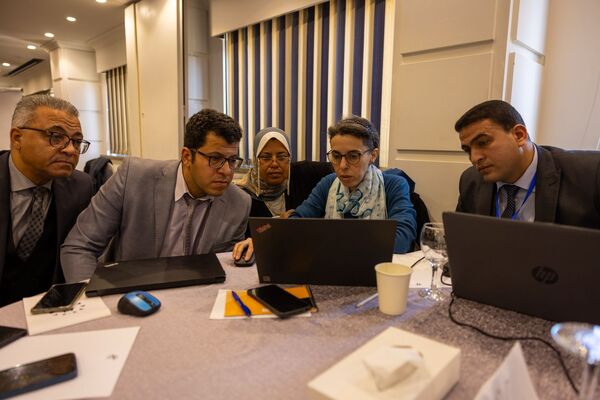
Ms. Kate Turner-Mann, Director, Capacity Development at the Australian Centre for International Agricultural Research (ACIAR), joined the workshop virtually, introducing ACIAR’s extensive work in agricultural research for development worldwide including the capacity development program, which contributes to ACIAR’s vision of reducing poverty and improving livelihoods through sustainable agriculture. “At ACIAR, we ensure that our research programs are developing scientific and policy capability within the partner countries. We aim to empower African research organisations and work with policymakers to plan climate-responsive agriculture into the future, resulting in better resilience and food security.”
Mr. Charles Kleinermann, Team Leader of ICARDA Capacity Development Unit and Interim Deputy Director CGIAR Capacity Sharing Accelerator, presented CGIAR’s 2025—2030 Science and Innovation Portfolio and emphasized the importance of having a specific program related to capacity sharing for the first time within the CGIAR, aimed to promote and coordinate CGIAR-Centers and partners’ capacity development program designed within three axes of work: Capacity Sharing Innovation Laboratory, Capacity Sharing Market Place and the Capacity Sharing South-South and triangular cooperation (SSTC). “The workshop organized by ICARDA in cooperation with ACIAR and our partners within Egypt, Algeria, and Sudan is an illustration of the work that the Capacity Sharing Accelerator intends to promote within the SSTC.”
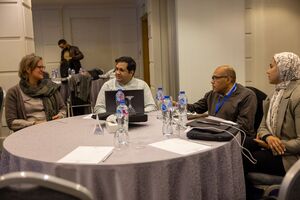
Alliance Bioversity International and CIAT joined the conversation over the week and emphasized the importance of integrating climate-smart agriculture, resilience, and social cohesion into North Africa’s agricultural research. They advocated for participatory research, conflict-sensitive approaches, and inclusive finance to ensure equitable agricultural transformation. Strengthening governance, policy innovation, and digital access will be key to fostering long-term resilience and food security.
As part of the workshop, participants visited the Sids Research Station in Beni Suef, where they explored ICARDA’s climate resilience initiatives. ICARDA scientists on the ground showcased cutting-edge technologies, including a solar-powered root zone cooling hydroponic system housed in net-house agronomic research sites. Participants also visited Farmers’ Demonstration Fields, where ICARDA’s innovations were being tested and disseminated.
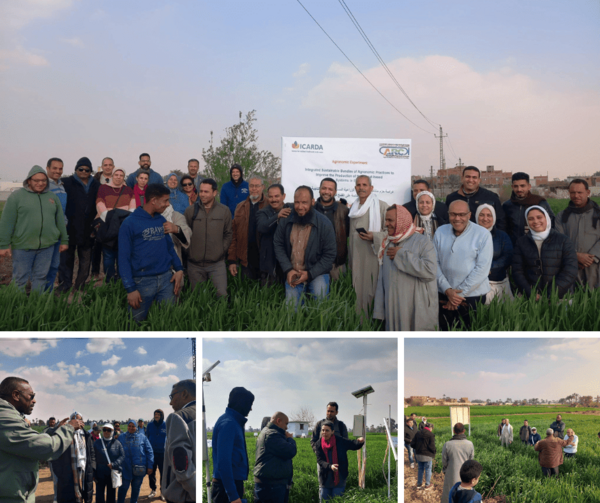
By the end of the workshop, participants had outlined a roadmap for each country to build upon, setting key priorities and emphasizing the role of capacity development in providing support. In Egypt, representatives identified key priorities in agricultural research and capacity development, emphasizing the urgent need for climate-smart solutions to address water scarcity, soil salinity, and the broader impacts of climate change on crop productivity. In research, priorities included enhancing water-use efficiency, improving post-harvest quality, and developing sustainable farming practices suited to desert conditions. For capacity development, the focus was on equipping researchers, farmers, and policymakers with expertise in modern irrigation, climate adaptation, and water governance along with expanding student and faculty exchange programs, fostering innovation hubs, and strengthening industry partnerships to drive long-term agricultural resilience and collaboration.
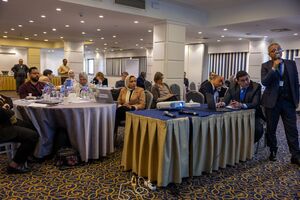
In Algeria priorities are to enhance climate resilience and agricultural productivity by improving legume systems, developing drought-tolerant crops, optimizing irrigation, and advancing soil conservation. In terms of capacity development, key priorities included precision farming, sustainable crop management, and climate-smart agriculture to strengthen research impact and drive long-term agricultural sustainability.
Finally, Sudan's agricultural priorities highlighted the need to improve tillage practices, enhance water-use efficiency, strengthen seed systems, and develop climate-resilient farming strategies to combat water and heat stress. For capacity development, the focus was on sustainable tillage, water management, and seed system improvements while strengthening extension services to support technology transfer and climate adaptation.
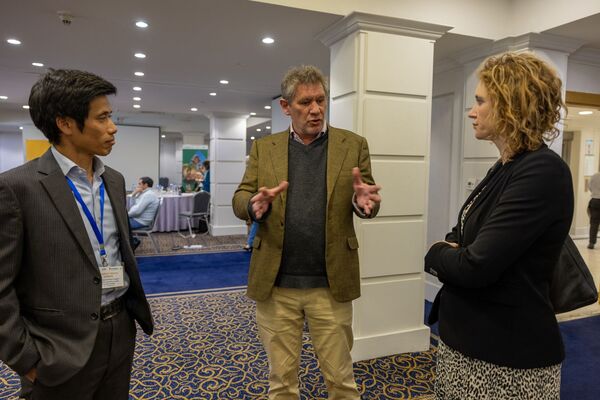
We extend our sincere appreciation to the Australian Government through ACIAR and the Africa-Australia Partnership for Climate Responsive Agriculture (AAPCRA) initiative for their generous support in bringing this insightful workshop to life. We were honored to welcome Ms. Elizabeth Wright, Deputy Head of Mission at the Australian Embassy in Cairo to close the program. Such collaborations are vital to achieving our shared goal of delivering resilient livelihoods for farmers in the dry regions and beyond.

